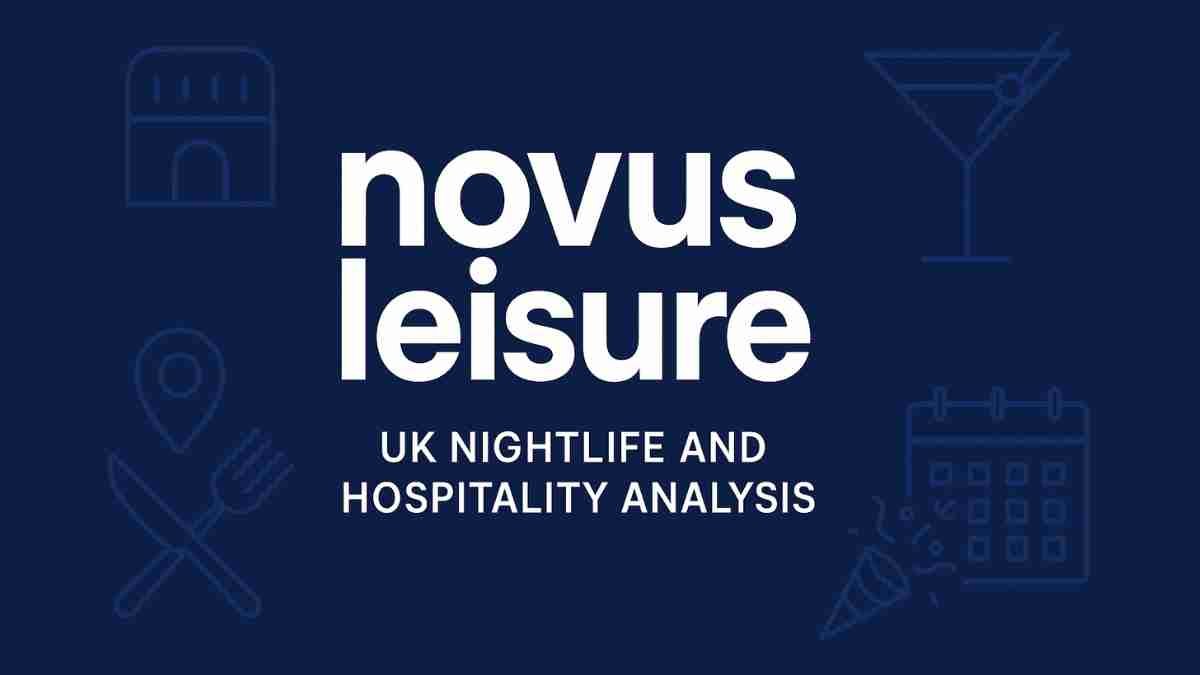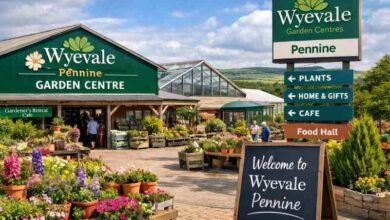Novus Leisure: From Nightlife Icon to Experience-Led Hospitality Powerhouse

Novus leisure is a name many associate with buzzy dancefloors, cocktail trees, and late-night city energy. Yet beneath the neon lights sits a sophisticated hospitality engine: an operator that has shaped how urban Britons socialise after work, celebrate milestones, and book memorable nights out. To understand why this brand remains influential, you have to look past the surface of party culture and into the strategy—site selection, concept development, technology, event programming, and brand storytelling—that keeps people coming back. In today’s experience economy, where consumers trade ordinary evenings for share-worthy moments, the company’s ability to reinvent spaces, curate entertainment, and execute operationally at scale makes it a relevant case study for anyone interested in modern hospitality or location-based entertainment.
Brand DNA: Concept-First, Occasion-Ready
At its core, novus leisure is concept-led. Each venue aims to be more than four walls with a bar; it is designed around a mood and a mission. In practice, that means:
Occasion-centric layouts: Distinct zones for pre-drinks, shared tables, booths, bottle-service areas, and dancefloors allow a venue to flex from after-work social to late-night celebration within the same evening.
Menu engineering: Cocktails with recognisable flavours (think citrus, berry, and approachable twists on classics) sit next to photogenic serves and group-friendly sharers that work for birthdays and office parties.
Entertainment layers: DJs, theme nights, sport screenings, and seasonal takeovers keep the programming fresh, reducing the “seen it all” drop-off that can hit nightlife brands.
The brand philosophy mirrors successful leisure operators worldwide: define the feeling, nail the flow, make it easy to book, and deliver something reliably memorable.
The Venue Playbook: Location, Layout, and Logistics
A thriving late-night venue is part theatre, part logistics. novus leisure’s playbook typically focuses on:
Prime urban catchments: Proximity to transport hubs, corporate districts, and university corridors expands day-to-night demand.
Sightlines and sound: A good floorplan makes the room “feel full” at 40% capacity, while acoustic treatment keeps the energy without the chaos.
Queue management and entry: Clear, courteous door policies reduce friction and build trust with both regulars and first-timers.
Back-of-house efficiency: Prep kitchens, keg rooms, and replenishment routes are honed so front-of-house can stay guest-facing when the rush hits.
When these fundamentals work, the venue feels effortless to a guest—because the difficult parts are invisible.
Digital Discovery: Winning the Search-to-Booking Journey
Great nights now begin on a phone. For a nightlife brand to thrive, it must win the “micro-moment” when someone searches for after-work drinks, a big-group booking, or a Saturday plan. What sets strong operators apart:
Local SEO with intent-rich pages: Pages that reflect what people actually search (“bottomless brunch near me”, “hen party packages”, “private booths”, “screening big match”) capture demand before it disperses.
Frictionless booking UX: Real-time availability, simple deposit rules, and instant confirmations reduce dropout and decrease customer service overhead.
Social commerce: Short-form video that shows energy, safety, and fun—plus user-generated content that proves the vibe—converts curiosity into bookings.
Post-visit re-engagement: Smart guest databases, tasteful offers, and “occasion reminders” (birthdays, promotions, seasonal parties) keep the brand top of mind.
novus leisure’s advantage is in joining these dots: making discovery, decision, and booking feel like a single, confident flow.
Audience Strategy: Office Crowds, Celebrations, and City Weekenders
Urban leisure demand is not one audience—it’s a mosaic:
Corporate and after-work: Quick-turn serves, reserved areas, and tab management keep planners happy.
Milestone groups: Graduate nights, birthdays, engagements, and reunions require packages, pre-orders, and a bit of theatre.
City weekenders: Tourists and suburban visitors want a “signature London night” without guesswork, favouring branded venues that promise consistency.
A mature operator balances these streams, shaping programming across the week so Mondays feel purposeful, Thursdays get their own voice, and Saturdays soar.
Revenue Mix and Margin Savvy
Strong late-night businesses rarely rely on one product line. The margin story tends to include:
Balanced drinks mix: House cocktails, volume spirits, draught beer, and premium upsells support both value seekers and occasion spenders.
Pre-booked groups: Deposits improve forecasting; pre-orders protect the pass during peak hours.
Event and private hire: Daytime and early-evening activations—brand launches, offsites, influencer showcases—monetise quieter periods.
Menu engineering for speed: Serving times shape profitability; high-impact, low-prep items drive throughput without compromising quality.
The result is resilience: if one demand stream softens, others help bridge the gap.
Risk, Resilience, and Reputation
Nightlife is inherently variable—weather, transport strikes, fixture lists, and macroeconomics all bite. Operators like novus leisure stay resilient by:
Operational discipline: Rota planning, inventory control, and training keep service nimble and costs in line.
Responsible retailing: Clear policies on entry, intoxication, and safeguarding protect guests and staff while preserving licence relationships.
Neighbour relations: Noise management and considerate dispersal keep the brand welcome where it trades.
Consistent guest recovery: Swift, human responses to feedback build long-term advocacy and drown out the odd off-night.
Reputation in hospitality is a compound asset; every shift adds or subtracts from the ledger.
Events & Private Hire: The Sleeper Growth Engine
One of the quiet strengths of brand-led operators is event revenue. A venue that looks spectacular at midnight can be surprisingly effective at 11 a.m. for a product briefing, content shoot, or team social. The playbook:
Modular spaces: Sections that can be screened off for semi-private hire give planners control.
AV readiness: Good screens, reliable sound, and simple connectivity remove the need for costly add-ons.
Clear packages: Day delegate rates, canapé menus, and drinks bundles make approvals quick.
Speedy contracting: Standard terms, transparent service charges, and courteous coordination win repeat business.
By treating private hire as a first-class product, a nightlife brand opens fresh, higher-margin trading hours.
Sustainability and Community: The Modern Licence to Operate
Contemporary city consumers care how venues treat people and places. Responsible operators put substance behind the brand promise:
Waste and energy: Smarter refrigeration schedules, LED retrofits, and measured ice production keep utilities in check.
Supply choices: Working with ethical suppliers, local roasters, and craft producers deepens community ties.
Inclusion and training: Proactive staff education around hospitality, safety, and accessibility turns policy into everyday practice.
Local partnerships: Collaborations with neighbourhood events, arts weeks, and charity drives anchor venues in the places they serve.
For brands like novus leisure, these commitments are not simply PR; they are part of long-term stability.
Hospitality Meets Work: Why Coworking Belongs in the Conversation
At first glance, a late-night venue and a flexible office seem worlds apart. Look closer and the lines blur. Both are about space, service, and experience—curated environments where people choose to gather. In the UK, coworking and flexible workspace providers have been borrowing from hospitality for years: barista bars, concierge-style reception, event programming, even scent and sound design. For readers comparing sectors—or seeking future partnerships—here is a neutral overview of major UK flexible workspace brands and how their philosophies echo hospitality thinking.
IWG (Regus and Spaces)
Scale and stability: IWG’s Regus pioneered serviced offices decades ago, and Spaces brought a lifestyle-driven aesthetic—light, plants, lounges—to the mainstream.
Hospitality parallels: Front-desk teams act as community managers; shared lounges function like daytime hotel lobbies. The emphasis on consistency and frictionless services mirrors chain hospitality.
The Office Group (TOG)
Design-forward identity: TOG champions architecture and interiors—statement staircases, generous lounges, bespoke furniture—creating the same “wow on entry” that a premium late-night venue seeks at 10 p.m.
Programming: Wellness classes, talks, and member socials use event thinking to deepen loyalty.
Workspace Group
Neighbourhood campuses: Often converting industrial buildings into creative hubs, Workspace treats its assets as micro-districts with cafés, courtyards, and retail.
Brand lesson: A sense of place matters. As in nightlife, the story of the building becomes part of the guest experience.
Fora
Boutique service: Fora leans into concierge-style hosting, acoustically refined rooms, and quietly premium finishes—hospitality cues that make even a Tuesday meeting feel special.
Event-ready spaces: High-spec presentation suites echo a private-hire-ready venue.
Huckletree
Community with a thesis: Huckletree’s themed hubs (for example, conscious innovation or Web3) act like curated club nights—picky on purpose, so connections feel high-signal.
Editorial programming: Talks, showcases, and member spotlights parallel a venue’s weekly entertainment grid.
Uncommon
Biophilic calm: Natural materials, lots of greenery, and wellness-first amenities turn the office into a retreat.
Service style: Thoughtful touches—tea points that feel like cafés, focus pods that actually work—are hospitality through and through.
x+why
Impact-driven workspaces: Sustainability and purpose baked into the brand.
Partner potential: Values-led events, responsible suppliers, and content-rich calendars could align neatly with a hospitality operator’s community initiatives.
By spotlighting these providers, we can see a common playbook: curated environments, great service, and purposeful programming. The overlap with nightlife brands such as novus leisure is significant—especially around events, community building, and storytelling.
Convergence Opportunities: From Daytime Hubs to Night-Time Energy
There is fertile ground for collaboration between hospitality operators and flexible workspace brands:
Day-to-night pipelines: A workspace hosts an afternoon talk; the after-party moves to a nearby venue with pre-arranged packages, keeping momentum and simplifying logistics for organisers.
Shared membership perks: Workspace members get queue-jump or booth credits mid-week; venue guests receive day-pass trials for local coworking spaces.
Content and culture: Joint calendars—mixology workshops in the day, founder fireside chats in the evening—build community across both ecosystems.
Space optimisation: Venues can test daytime concepts (coffee pop-ups, quiet-work mornings, creative residencies) while workspaces host occasional late-night showcases.
The commercial benefit is clear: better utilisation, broader audiences, and stickier loyalty.
Challenges Ahead: Cost Pressures, Licensing, and Changing Nights Out
No analysis would be complete without acknowledging the headwinds:
Input costs: Energy, payroll, and compliance expenses require relentless efficiency without diluting the guest experience.
Shifts in night-time behaviour: Health consciousness, earlier evenings, and experience diversification (escape rooms, darts, boutique cinema) expand the competitive set.
Regulatory complexity: Licensing frameworks demand impeccable operations and community sensitivity.
Talent market: Retaining skilled managers and bartenders in a tight labour market means investing in training, culture, and progression.
A brand like novus leisure stays competitive by betting on what will never go out of fashion: feeling welcomed, looked after, and part of something lively.
Practical Takeaways for Planners and Marketers
If you’re booking a group night, planning an event, or benchmarking hospitality strategy, borrow these principles:
Design for moments: Photo-friendly servings, celebratory rituals, and thoughtful lighting turn a good night into a great memory.
Make booking effortless: Transparent packages, instant confirmations, and smart upsells reduce friction and increase spend.
Program the week: Give every day a purpose—student specials, live sport, throwback nights, or acoustic sets—so the calendar itself becomes a marketing channel.
Partner locally: Work with neighbourhood brands, creators, and workspaces to cross-pollinate audiences.
Measure and improve: Track dwell time, covers per hour, and repeat rates; fix bottlenecks fast and celebrate what works.
Conclusion: The Next Chapter for Novus Leisure
The story of novus leisure is not only about dancefloors. It’s about the craft of creating places people choose—again and again—to spend their finite free time. In a city where options multiply by the week, that choice is hard-won. The brand’s future will rest on how well it continues to fuse design, service, and programming into a cohesive, occasion-worthy whole while broadening its relevance through daytime events and thoughtful community partnerships.
At the same time, the UK’s flexible workspace leaders demonstrate how hospitality logic now defines more than bars and restaurants—it shapes the modern office. As these worlds converge, expect to see more crossovers: day-to-night collaborations, dual-use spaces, and calendars that treat Tuesday noon and Saturday midnight with the same creative intent. For guests, members, and planners, that convergence can only be good news: better spaces, better service, and better stories to tell.



